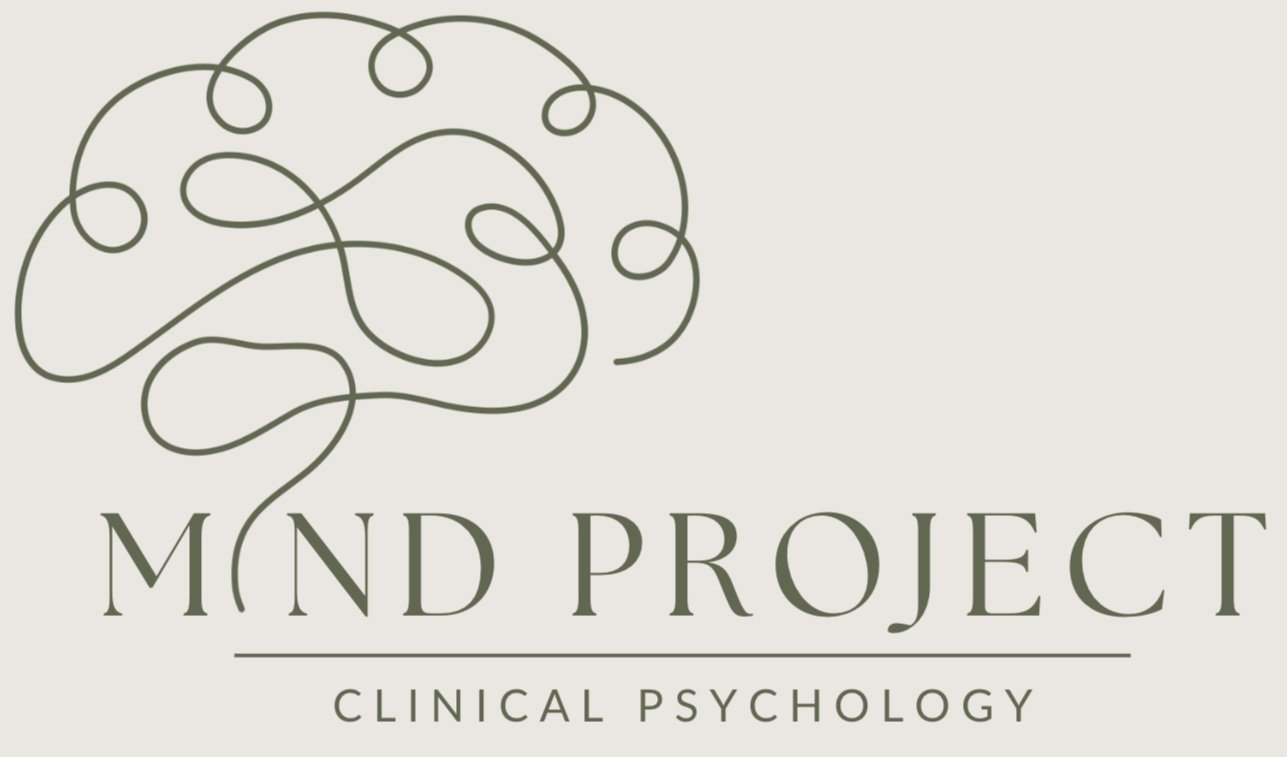
Specific Learning Disorder Assessment
A specific learning disorder (SLD) is a neurodevelopmental disorder characterized by persistent and significant difficulties in acquiring and using academic skills, such as reading, writing, or mathematics, that are not solely due to intellectual disabilities, sensory impairments, or inadequate educational opportunities. SLDs can manifest as specific reading disorder (dyslexia), specific writing disorder (dysgraphia), or specific math disorder (dyscalculia). These disorders often become evident during a person's school years and can significantly impact their academic achievement and daily functioning. Early diagnosis and intervention, typically through tailored educational support, are essential for individuals with SLDs to succeed academically and develop coping strategies for their challenges.
What is a Specific Learning Disorder?
We do SLD assessments for
Teens
Children 6+
Adults

Assessment Process
-

1. Clinical Assessment Interview
In the first session, we conduct a comprehensive Clinical Assessment Interview, which typically lasts for 2 hours. For assessments involving children, we also include an interview with their caregiver to ensure a holistic understanding. During this session, we provide you with a set of online questionnaires, tailored to your specific needs. These online questionnaires will be completed in the comfort of your home, allowing you to take your time. The cost for this session is $400, and it serves as the foundation for the insightful journey ahead.
-

2. Assessment
In our second session, which extends for approximately 3 hours, we dive deeper into the assessment process. The cost for this session is $1240, and it includes the essential report writing and scoring work carried out after the appointment, ensuring you receive a comprehensive evaluation. During this session, we administer a range of assessments including the WISC-V, WIAT-III, DKEFS and CVLT-III For children and the WAIS-IV, WIAT-III, DKEFS and CVLT-III for adults. This session is a pivotal step in the assessment process.
-

3. Feedback Session
In session 3, you'll spend an hour with our experienced psychologist. This session costs $200. In this session you'll receive your comprehensive Assessment Report, expert feedback, and psychoeducation. This session is highly beneficial as it equips individuals with a deeper understanding of their condition, fostering a sense of empowerment and control over their mental health. It also enables individuals to make informed decisions regarding treatment options and strategies for managing their well-being.
Specific Learning Disorder Assessment Fee Overview
Session 2
$1240
Approximately 3 hours. Price includes an 8 hour report scoring and write up by clinician
Session 1
$400
Approximately 2 hours
Session 3
$200
Approximately 1 hour
The Intellectual Functioning Assessment costs $1840 in total. After the first session, we'll let you know if a formal assessment is needed. If not, you'll only be charged for the first session.

How a Specific Learning Disorder Assessment may benefit you.
Early Intervention: An assessment can identify SLDs early in a person's academic journey, enabling timely interventions and support
Boosted Confidence: Successful intervention can increase self-esteem and confidence, helping the individual feel more capable and less frustrated in their learning.
Eligibility for Accommodations: Assessment results may qualify the individual for academic accommodations, such as extended testing time, which can level the playing field.
Tailored Interventions: Assessment results guide the development of individualized educational plans and strategies to address the specific learning challenges.
Long-Term Success: Effective assessment and intervention sets the stage for long-term academic and personal success, fostering resilience and adaptability in the face of challenges.
Reduced Emotional Stress: Understanding the SLD can alleviate stress and anxiety related to learning difficulties and enhance overall well-being.
Improved Academic Performance: With targeted support, individuals can overcome SLD-related obstacles and improve their academic performance.
Advocacy Skills: Individuals can learn to advocate for their learning needs and access necessary support systems.
Career and Life Planning: Knowing about the SLD can assist in career planning and skill development, enabling individuals to choose careers that suit their strengths.
Understanding Individual Needs: Assessment helps educators and parents better understand the individual's unique learning profile, allowing for more effective teaching strategies.
Common Signs of a Specific Learning Disorder
-
(Dyslexia)
Difficulty in recognising and pronouncing words: Individuals with dyslexia often struggle to decode and pronounce words accurately. This can involve mispronouncing words, difficulty recognising common sight words, and a tendency to guess or skip words while reading.
Struggles with reading fluency, accuracy, and comprehension: Dyslexic individuals may read slowly, have difficulty maintaining a smooth reading pace, and make frequent mistakes while reading. Comprehension can also be a challenge, as they may not fully grasp the meaning of the text.
Frequent letter reversals or difficulties in phonological awareness: Letter reversals, such as confusing "b" with "d," are common in dyslexia. These individuals may also struggle with phonological awareness, which involves recognising and manipulating the sounds in words.
-
Dysgraphia
Poor handwriting with inconsistent letter formation: Dysgraphic individuals often have illegible handwriting, with inconsistent sizing, spacing, and letter formation. This can make it challenging for others to read their written work.
Difficulty with spelling, grammar, and organising thoughts in writing: Dysgraphia can manifest as difficulty with spelling common words, using proper grammar, and organising thoughts into coherent sentences or paragraphs.
Slow and laborious writing: Writing may be slow and labour-intensive, as individuals with dysgraphia struggle to put their thoughts on paper.
-
Dyscalculia
Difficulty with understanding mathematical concepts: Dyscalculic individuals may have trouble grasping fundamental mathematical concepts, making it challenging to progress to more advanced maths.
Struggles with mathematical operations, such as addition, subtraction, multiplication, and division: Basic arithmetic operations can be difficult, leading to calculation errors and a lack of confidence in maths.
Challenges in applying mathematical concepts to real-life situations: Dyscalculia can hinder the ability to apply maths skills in practical situations, such as managing finances or solving everyday problems.
-
Slow or laborious reading, writing, or problem-solving: Individuals with SLDs may take longer to complete academic tasks, often needing more time and effort than their peers.
Frequent errors in assignments and tests despite sufficient effort: Despite putting in significant effort, individuals with SLDs may continue to make errors in their work.
Difficulty in retaining and recalling information learned: Retaining and recalling information can be a challenge, leading to difficulties in tests and daily academic tasks.
Reluctance to engage in academic tasks due to frustration or avoidance: SLD-related challenges can lead to frustration and avoidance of academic tasks, impacting self-esteem and motivation.
Diagnostic tools used for our Specific Learning Disorder Assessments
— ABAS
TThe ABAS, or Adaptive Behavior Assessment System, is a comprehensive tool used to assess and measure adaptive behavior in individuals of various age groups. Adaptive behaviours are the everyday skills and abilities needed for independent functioning and social participation. The ABAS evaluates an individual's adaptive skills across various domains, such as communication, daily living skills, socialisation, and motor skills.
— CVLT-III
The California Verbal Learning Test-III (CVLT-III) is a widely employed neuropsychological assessment tool used in Australia and globally. It evaluates an individual's verbal memory and learning abilities by presenting a list of words for immediate recall and assessing delayed recall, recognition memory, and learning over multiple trials. This assessment is instrumental in diagnosing memory-related disorders, evaluating cognitive functioning, and planning appropriate interventions for conditions such as Alzheimer's disease, traumatic brain injury, and psychiatric disorders.
— RCAD (for Children)
The RCAD, or Revised Children's Anxiety and Depression Scale, is a widely used self-report assessment tool designed to measure symptoms of anxiety and depression. It is commonly utilised by mental health professionals to assess emotional well-being in young individuals. The RCAD questionnaire consists of items that inquire about a child's thoughts, feelings, and behaviours related to anxiety and depression, providing valuable insights into their emotional state and helping in the identification of potential mental health issues.
— DKEFS
The Delis-Kaplan Executive Function System (DKEFS) is a comprehensive neuropsychological test battery used to assess various aspects of executive functioning in individuals. Developed in the United States but used in Australia and other countries as well, it measures skills like problem-solving, cognitive flexibility, inhibition, and planning. The DKEFS helps clinicians and researchers evaluate an individual's ability to manage complex cognitive tasks, which is crucial for daily life activities, academic performance, and work-related functions. It provides insights into executive function strengths and weaknesses and is often employed to assess individuals with conditions such as ADHD, brain injuries, and neurological disorders.
— WIAT-III
The Wechsler Individual Achievement Test-Third Edition (WIAT-III) is a widely used educational assessment tool in Australia and around the world. Designed to evaluate the academic achievement and skills of individuals aged 4 to 50+ years, the WIAT-III assesses various domains, including reading, writing, mathematics, and oral language. This assessment is valuable for diagnosing learning disabilities, identifying educational strengths and weaknesses, and informing educational interventions and support services. It provides a comprehensive overview of an individual's academic abilities, aiding educators, psychologists, and other professionals in making informed decisions regarding educational planning and interventions.
— WAIS (for Adults)
The WAIS, or Wechsler Adult Intelligence Scale, is a widely used standardised intelligence test designed to assess cognitive abilities and intellectual functioning in adults. It is intended for individuals aged 16 to 90 years and older. The primary purpose of the WAIS is to measure a person's general cognitive abilities, which include problem-solving, logical reasoning, memory, and other higher-level thinking skills. The WAIS assesses a wide range of cognitive abilities through various subtests, including verbal comprehension, perceptual reasoning, working memory, and processing speed. It provides an overall measure of an individual's intellectual abilities known as the Full-Scale IQ (Intelligence Quotient). The results of the WAIS are used to understand an individual's cognitive strengths and weaknesses, diagnose learning disabilities, assess intellectual giftedness, and guide educational and intervention planning.
— DKEFS
The Delis-Kaplan Executive Function System (DKEFS) is a comprehensive neuropsychological assessment tool used worldwide. It is designed to evaluate various aspects of executive functioning, such as problem-solving, cognitive flexibility, inhibition, and planning. The DKEFS is valuable for assessing an individual's ability to manage complex cognitive tasks, which is essential for daily life, academic performance, and occupational functioning. It aids in identifying executive function strengths and weaknesses and is often employed to assess individuals with conditions like attention deficit hyperactivity disorder (ADHD), brain injuries, and neurological disorders.
— WISC (For Children)
The WISC stands for the Wechsler Intelligence Scale. It is a widely used standardised intelligence test designed to assess the cognitive abilities and intellectual functioning of children and adolescents aged 6 to 16 years. The WISC provides a comprehensive evaluation of an individual's cognitive strengths and weaknesses across various domains, including verbal comprehension, perceptual reasoning, working memory, and processing speed. The primary goal of the WISC is to measure a child's intellectual abilities, such as problem-solving, logical reasoning, and abstract thinking. It is commonly used in clinical, educational, and research settings to assist in diagnosing learning disabilities, identifying giftedness, and guiding educational and intervention planning.
— DASS-21 (for Adults)
The DASS-21, or Depression Anxiety Stress Scales - 21 Item version, is a self-report assessment tool designed to measure the severity of symptoms related to depression, anxiety, and stress in individuals. The DASS-21 consists of 21 items that inquire about various emotional and psychological symptoms, and respondents rate the frequency and severity of these symptoms over the past week. It provides valuable insights into an individual's emotional well-being and is used as part of mental health assessments to assess and monitor symptoms of depression, anxiety, and stress. The DASS-21 is widely used to evaluate emotional distress and assist in treatment planning for individuals with mood and anxiety disorders.













